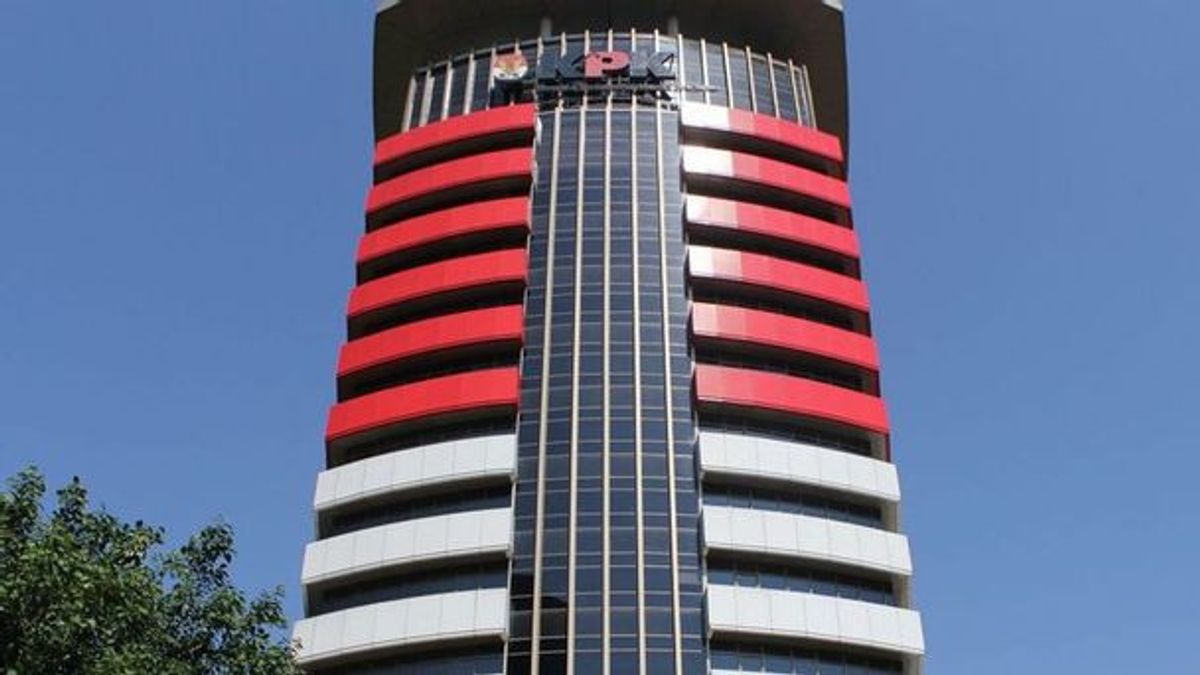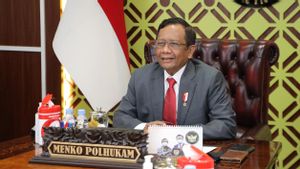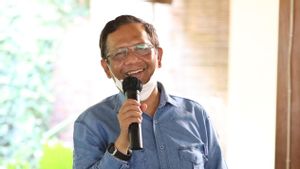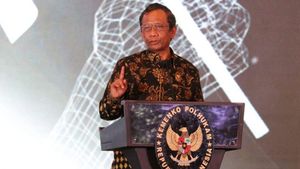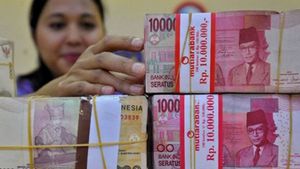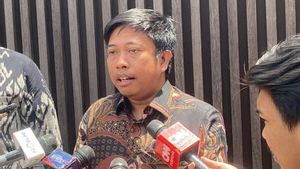JAKARTA - The polemic on the National Insight Test Assessment (TWK) which disabled 75 employees of the Corruption Eradication Commission (KPK) continues. Later, it was alleged that this test was a form of weakening the anti-corruption commission ahead of the upcoming 2024 political contest.
The Director of Socialization and Anti-Corruption Campaign of the KPK, Giri Suprapdiono, assessed that the weakening of the KPK through the TWK is related to the democratic party that will take place in 2024. This is done because politicians often commit corruption in the middle of the contestation process because of the high cost of politics.
"And when they have succeeded in occupying the position, two thoughts arise, namely how to return the money that has been spent and find more money to be used again in the next election," Giri said in a webinar via the Zoom platform, Monday, June 7.
Agreeing with Giri's statement, Managing Director of Paramadina Public Policy Institute, Khoirul Umam said that the KPK is currently the only law enforcement instrument that can correct the authorities. Thus, this weakening will be the beginning of the rise of neo-authoritarianism after 23 years of reform.
Not only that, it is not impossible that by 2024 the whole process of investigating this corruption case will turn into a lot of political content. The reason is because of the weakening of the KPK which has been carried out from now on.
"Towards 2024, the process of investigation, prosecution, and sentencing, which should be in the corridor of law enforcement, has turned into a political area", he said in the same discussion.
"While the eradication of corruption itself is more often resolved by the method of political compromise", added Khoirul.
TWK's statement allegedly related to political contestation was also conveyed by former KPK spokesman Febri Diansyah.
In a dialogue entitled 'The Puzzle of Corruption Eradication', he was worried that the KPK would no longer be independent and be controlled by certain political forces with the elimination of dozens of employees through tests that were a condition for the transfer of employment status.
"If the KPK can be controlled by certain powers, if the KPK can be controlled by certain political forces. We cannot imagine that political contestation will run fairly in 2024", said Febri in the dialogue.
"People only think that the 2024 contestation is just the presidential election. In fact, there are three. We cannot imagine that an independent anti-corruption institution is used to beat up political opponents, so what happens is that the oligarchy will be stronger because there is no fair political contestation", he added.
After such allegations emerged, the KPK also spoke up. Acting KPK Spokesperson for Enforcement Ali Fikri denied and said it was too far if the TWK who deactivated Novel Baswedan et al, was associated with the upcoming 2024 political contestation.
"It's too far to link the implementation of the TWK for all permanent and non-permanent KPK employees with the 2024 political contestation", Ali told reporters.
According to him, TWK is a condition for the process of transferring employee status from independent to state civil apparatus (ASN) and there is no other purpose behind its implementation. In its implementation, this test is also by the applicable laws and regulations.
"KPK as one of the law enforcement officers, in our efforts to enforce and implement the law, we do it by the rules and legal corridors and not by violating the law," Ali explained.
Ali said his party would remain independent in carrying out their duties as law enforcement officers. Not only that, but the anti-corruption commission also ensures that the handling of corruption cases in its institution will not consider the political and social background of the perpetrators.
"The handling of cases does not look at the political and social backgrounds of the perpetrators, but is based on the adequacy of evidence as stipulated by law", he said.
Moreover, the main tasks and functions of the KPK are not only in the field of prosecution, as the public has so far feared. Other tasks must be carried out by this institution, starting from prevention, to education on community participation in efforts to eradicate corruption.
"The main task of the function of the KPK is not only in the field of prosecution, but there are also tasks of prevention, monitoring, coordination, supervision, and education of community participation in efforts to eradicate corruption", he said
As previously reported, the TWK was attended by 1,351 KPK employees. Of these, 1,274 people were declared eligible.
Meanwhile, 75 employees, including Novel Baswedan, Chairman of the KPK Employee Forum who is also investigator Yudi Purnomo, Director of Socialization and Anti-Corruption Campaign Giri Suprapdiono, Head of the KPK Task Force Harun Al-Rasyid, and Director of Inter-Commission Network Development and Agencies (PJKAKI), Sujarnarko were declared ineligible (TMS). While the other two employees did not attend the interview test.
SEE ALSO:
According to the employees who were declared unsuccessful, there were several anomalies in the implementation of this assessment. Including, several questions are considered to violate the private sphere.
These employees who did not pass then reported the implementation of the TWK to the National Human Rights Commission. Subsequently, a special team was formed, led by two commissioners, namely Choirul Anam and Sandrayati Moniaga to investigate the alleged human rights violations in this test.
In addition to submitting reports to National Human Rights Commission, these employees also report their leadership to several parties, from the KPK Supervisory Board to the Indonesian Ombudsman.
The English, Chinese, Japanese, Arabic, and French versions are automatically generated by the AI. So there may still be inaccuracies in translating, please always see Indonesian as our main language. (system supported by DigitalSiber.id)
